By handpicking the right data, it is easy to start believing that China is already a superpower, ready to take on its rival, the United States of America-
Its $18 trillion economy is pretty comparable to the USA’s $28 Trillion (almost 60%). Keep in mind, the third, Germany, is “only” about $4.5 Trillion (about 16%), and, the Soviet economy, a rival to the US in the late 20th Century, never exceeded 58% of America’s.
China’s military surpasses that of the US in terms of manpower, increasingly advancing technologically too.
It has political influence, world-class infrastructure with advancements in space and technology, leads in innovation with globally competitive private firms, and is blessed with resources, all just like the US but unlike any other country.
It is no small feat to excel in these sectors above all at once. Apart from the US and China, no other country currently does-
Germany and Japan no longer need and therefore lack the strong militaries they once had. Their post-World War Two focus has majorly been on economic growth rather than global influence.
UK, France, and Spain, once great European powers, now have limited economies relying mostly externally for critical raw materials, trade, and military.
Similar statements can be made for newly developed Asian economies like South Korea, Taiwan, and Singapore for their lack of physical resources, while technical and economic faults can be found in resource-heavy nations from Africa and South America.
Everything above seems to lack context right? That is because it is a myopic view.
When you see the story of a country’s strength from just one lens (political, economic, diplomatic, or military), by reading into just the recent developments, or from a single article, you tend to be convinced of one side quickly and irreversibly.
To get the full picture, we have to consider all sides- Both the strengths and the weaknesses of the Chinese Communist Party (CCP) led nation, its parallels with the US, comparisons with the past as well as its future ambitions. We need to consider both why China could become a superpower and why it might not.
But first, is China already a Superpower?
It is tempting to respond in variations of “it depends”. It does. So to start, let’s ask one critical question first-
Do other countries want another superpower on the global stage?
US’s global reach, list of overseas military bases, and cooperative allies say otherwise. The Cold War decisively gave the world’s response to a bipolar order. Sure, the US has adversaries, but for now, the world seems fine with the US calling the shots for a while and might even oppose a Chinese-led order, especially the states aligned west. After all, you only get to be a leader when others want you to be.
The fact that China is not considered a regional hegemony by some even in its own sphere of influence, Asia, despite its assertive stances in the South China Sea militarily and diplomatically, shows this.
Wait, does China even want to be a superpower?
China has been a great power influencing Asian civilizations for centuries. To that effect, it is a superpower in Asia for many, contradicting those above who scoff at its regional power status. Historically though, China itself has arguably never seemed to actively aim for the superpower medal, unlike other empires around it, say- Russia or Japan. Factors like geography always stood in the way while long-lasting self-sufficiency and resource abundance questioned its need in the first place.
Currently, however, looking at the rising nationalistic sentiment of the Chinese and its current administration, the PRC’s ambitions now seem focused and clear on this goal. Its actions— the high military spending, foreign outreach programs, trade policies, and, more simply, public statements from political leaders— are increasingly harder to divorce from each other.
The phrasing of this article, in particular the title, might give the impression of a biased opinion when it isn’t. The points mentioned below are just two sides of the same coin presented with facts and readers are encouraged to form their own opinion.
Why It Can Be
Economic Indicators
A common achievement among all superpower empires of the past was economic performance. It is the most sought-after symbol of strength. China stands as the only economy rivaling the behemoth that is the US in size and growth. The next in line- Germany ($4.5T), Japan ($4.1T), and India ($3.8T) are laughably behind. But China’s story is not all just numbers-Most discussed is its manufacturing sector, often referred to as the factory of the world. Even as foreign companies and Governments try to decouple, breaking up decades of efficiencies of supply chains would take just as long as building them took, which gives the PRC a lot of leverage.
But it is not merely manufacturing and exporting for others like a third-world country. China’s domestic market itself is a large growing one pumping out Fortune 500 companies.
Speaking of which, China is one of the handful of countries with a private sector that actually competes with America’s. Huawei and TikTok are prime examples of companies that threatened American Big Tech companies so much that they are now facing legal hostility from the US.
Having a robust manufacturing sector also strengthens other factors of the economy. Most notably, a rising middle class (which, in turn, fuels the domestic market), a large export sector coupled with multiple Free Trade Agreements, and high foreign investment.
Hence China is a rare country possessing both a strong manufacturing industry which can serve and the huge domestic market that can be served to, creating a cycle of self-sufficiency and leverage every economy dreams of. Its peers- the UK, Germany, and Japan, equipped with robust manufacturing, lack the strong domestic market while India, South Africa, and Brazil have the latter yet fail to catch up to China in producing, incidentally, both products and internationally influential MNCs.
Politics— China’s Diplomatic Soup
A country's ability to affect global policies and politics is seen as a symbol of its superpower status. The US has, since the 19th Century, meddled in other nations’ affairs and conflicts, whether by its own accord or because it was asked to. To be able to persuade other countries in your favor and be looked up to during a conflict is a symbol of power.
Your level of influence defines your superpower status. If you can influence politics across multiple states around the globe, you can be called a superpower akin to the US of the present or the USSR of the past. Otherwise, you are a limited regional hegemony resembling 19th Century Napoleon France or 20th Century Imperial Japan. For China, this limit too has been changing-China’s too-good-to-be-true loans and huge trade with developing countries are often discussed as a deliberate debt trap to gain allies, as these states can be influenced to align with the PRC on the world stage. While the extent of China’s active role here has been argued, its influence on these countries cannot be ignored.
Projects like the Belt Road Initiative (BRI) and entities like the Asian Infrastructure Investment Bank (AIIB) are scrutinized due to worrying concerns of the West regarding both the economic and military gains getting to China.
The previously discussed manufacturing capacity gives China geopolitical leverage due to the economic and strategic challenges any decoupling attempts will take.
The same can be said with dominant Multinational Corporations (MNCs) like TikTok and Huawei, which due to the CCP’s control over them, can surely be used for the party’s own interests.
Its mediation efforts in the Middle East in stopping wars is also part of the strategy to display its diplomacy.
The BRICS organisation has been touted to be a geopolitical rival to the G7 Bloc. China’s participation in it grows its power indirectly.
None of this is theoretical in nature or a warning for some distant future. The results of these strategies are in full display in the continent of Africa, where the US’s declining influence corresponds with China’s rise, both militarily and economically.Bottom line, the People’s Republic seems to have found alternatives to most of Western-led channels.
Whether that’s AIIB to the World Bank, BRICS to the G7, or BRI to the existing dominance of the West in global trade. They might not be as effective yet but have the potential to seriously disrupt the West’s influence.
That Military though
Naturally, the most apparent show of strength is military might. Ask North Korea. While still not competing with the US and NATO yet, Beijing is once again, at the top of the ranks. It is-
as an Army-
The world’s largest force by manpower;
Increasing collaboration with allies like Russia;
as a Navy-
The largest navy by number of ships. How large? The equivalent of a Royal British Navy every 4 years;
Expanding its fleet of ships, carriers, etc. with plans to bring in 400 more giving cause to worry for the United States;
possessing formidable assets such as Nuclear submarines, advanced warships, and frigates;
as an Air Force-
A division that has made substantial expansion in the 21st Century;
A major achievement is the modernisation of its fleet, something the US falls short of;
with its Nuclear Stockpile- One of the few countries in the world with a nuclear arsenal. The dynamics of possessing nuclear weapons have been argued, especially now with the Ukraine situation. But their presence still makes the White House hesitate to do anything rash;
Regarding Cyber Warfare- which the Ukraine-Russia war prominently portrays the seriousness of. Chinese State-sponsored attacks are growing both in complexity and scale, to which the US, according to its own officials, still grapples to figure out an adequate response.
What’s unique to China is that the CCP is rarely shy showing this strength. Especially with its border, Beijing tries to intimidate its neighbors all the time. From patrolling in the South China Sea to conflicts with India or even with its allies like Russia, China is very particular about its border.
The effects of this intimidation are immediately apparent when seeing the response- the alliances like the QUAD (US, Australia, India, Japan) and AUKUS (US, Australia, UK) all exist to curb China’s expanding footprint in the Indo-Pacific.
Pure Strength and mild intimidation fail to narrate the full story when comparing two militias in a war situation. Other factors (discussed below) matter more. But these acts are in favor of China’s objective of projecting power and essentially being good enough. The US would have put it in the same basket as North Korea if they were not.Blessings of Buddha
A lot of the immediate alarm bells are raised from China’s control over supply chains. Much of that control itself stems from the country’s strong monopolies in resources such as rare earths or in productions like making iPhones for the world.
Now, picturing the PRC using that as any sort of leverage is more paranoia than caution. It cannot. At least not for long. But we are talking about China’s superpower status, not its ability to bully. And in that context, the control the PRC has alludes to its place in the global order. Very much like the US before it.Innovation - China’s Check in Chess
Technology is the backbone connecting all other areas a country can excel at. It can save an economy, end wars in an instant, or, in this article’s context, project power on the global stage-
While the US has managed to keep major intellectual property and sophisticated tech such as semiconductors and artificial intelligence, out of their rival’s hands, China’s leads in innovation are inevitable to close that gap.
Militarily, China’s progress in drone equipment or quantum communication and encryption rivals the West.
Commercially, examples include WeChat, China being the only one able to pull off a super app, as well as BYD EV maker, the largest in the world, even worrying Europe. Denying access to technology that your country relies on is a scarily good tactic that can be used to cripple you. Huawei’s story irrefutably shows that and China can soon be in a position to play that hand against the US when, not if, it catches up to it.
What’s bad news about this symbol of power for America is that, unlike others, the US can not do much here to counter its rival. A country’s progression in technology can be slowed down but never stopped. To do so with bans and tariffs is wishful thinking.The Great Wall of Infrastructure
China’s shiny High-Speed Rails and excessively engineered bridges contrast with the United States’ aged infrastructure.
From EV charging stations to the latest 5G implementation, China is a generation ahead. Robust infrastructure is not a direct show of strength but it symbolizes rising prosperity and increased stability.
Why it cannot be
Anyone reading just the points above, then closing this read and moving on will fall into the bias trap. As with most things including the ambitions of a potential superpower, China’s strengths have critics. Arguing contradictions and listing catches to anyone ready to listen. And while these critics can be downplayed as Westerners simply trying to boost their own morale amidst a growing Chinese threat, they neither exclusively fall into that group nor always fail to raise valid points. A chunk of the points are summarised below-
Patchy Economic Growth
The PRC’s growth is indeed impressive, its economy is surprisingly resistant, while its size stands the only one comparable to the US. But it still has huge gaping holes to fill before it majorly starts worrying the White House. Simply put, there are a lot of ifs and buts in the Chinese economy-While it has one of the largest workforces in the world, it is an aging, and more worryingly, a shrinking one, compared to those in India, Vietnam, or Brazil. One only needs to look at China’s own neighbors, South Korea and Japan, to realise the economic disadvantage this entails. The US, with its influx of immigrants, isn’t facing this problem anytime soon.
The Chinese Yuan (or Renminbi), is still a paltry 3% of global transactions compared to US’s more than 60%. Efforts to change that have not shown results yet. A potential BRICS currency is not China’s even if it manages to challenge the USD.
The country’s recent housing crisis, handling of the COVID pandemic, and the ensuing protests prominently display not only the leaks and gaps in its economy but also the perils of mismanaging it.
Chinese GDP per capita stalled at around $12,600, whereas the United States GDP per capita soared to $83,000 in 2021, which is just one of the metrics indicating the inequality in China’s growth story, one which takes it at the bottom of all other countries except for a few.
It is important to note though, that the US is not immune to economic crisis or a post-pandemic recession and that China isn’t the only economy with faults. China is just a unique one due to its political administration and the ambitions of that administration.
Jesus blesses more than the Buddha?
Humanity has still not reached a stage where the significance of nature’s gifts can be ignored. There are two physical endowments essential in the contemporary landscape which the US has an abundance of while China comparatively lacks-An energy problem- Until at least the 2070s when global reserves deplete, oil and gas stand fundamental in geopolitics. Especially after Russia’s invasion, the leverage of oil is apparent. And what do we see here? Only the US as the largest producer of oil and China, the largest importer. This fact alone doesn’t weigh heavily on the PRC but speaks mountains for the US’s self-sufficiency, stability, and power.
A Geography problem- America’s favorable geography is widely known similar to the UK or Japan. In short-
The vast coastlines on both the Atlantic and Pacific Oceans not only provide natural defence barriers and strategic control over maritime activities, but they also give access to global trade routes.
The country's extensive natural resources including fertile land and internal waterways fueling economic growth and self-sufficiency have ensured the US’s stability, and in turn, its power, in the toughest of times.
That Military Though??
Similar to economic prospects, while China’s growth in military strength is impressive, US capabilities still overshadow it-For one, the American experience in direct conflict is much more recent and comprehensive than China's. Regardless of its ultimate outcome, the US has had long-standing field experience in major wars such as in Afghanistan and Iraq. China’s last major one was in Vietnam in 1979.
Not to forget that in the event of any military showdown, the US’s list of allies isn’t helping China’s case. More on that below.
With technological advancements and overseas bases in several countries, Washington ensures its missiles, ships, and troops can counter enemy presence or provide reinforcements anywhere it wants faster than any other country. Combined with partnerships like NATO, QUAD, and AUKUS, it undoubtedly has the most superior global reach while Beijing has none to speak of.
Safe to say, Washington is still not militarily challenged. China’s progress needs to pick up the pace. It needs to quickly overcome the restraints. Restraints which pose as breaks such as the crippling sanctions from its rival and strangely, consequences of its own policies like the One Child Policy or the widespread corruption.
Political Relationships — Souring Soup?
A Stomach Ache
Or imagine if San Francisco had a separate set of laws similar to Hong Kong’s “One Country Two Systems” principle.
Or picture a human rights abuse and mass surveillance record multiple times worse than the Patriot Act and the NSA leaks combined? Add a full-on war against Muslims on top of it. Just like Uyghurs in Xinjiang.
These are the internal stability issues CCP is dealing with. They are not only politically costly but simply, just expensive. So until Beijing learns to put these problems behind it, it might never be able to hope to level with Washington.No One Wants China’s Dumplings
No superpower is anything without allies and China is not particularly great at making friends. Why? Perhaps its opaque closed system or its human rights record are turnoffs.
The countries that can be thought of as traditional allies seem like the backbenchers teachers warn you about as Russia enters the third year of its war against Ukraine, North Korea distances itself from the world with human rights abuses and literal threats, while ties with Pakistan reach its limits.
It is unclear how much the US should be wary of Chinese engagement with Africa, as detailed above. Despite the supposed influence, Beijing has exactly one military base in all of Africa while its count of formal military alliances with any African nation round off to exactly zero.
As regards the BRICS, it is pertinent to note the conflicting interests of BRICS countries as opposed to the unity of the G7 which slows down the PRC’s ambitions. China itself has regular disputes with India, a fellow member.
Meanwhile, the US’s list of allies also increase its political clout. While progress might be getting made as discussed before, it is slow at best and often bogged down by China’s own actions. After all, Beijing’s foreign policy of intimidation may not be taken well by the ones getting intimidated while its handling of internal issues weighs negatively on the rest.
Now this is not to say the US has not had internal struggles, stability issues, or strained relations with countries. After all, China is unlikely to have an event like the January 6 Capitol Attacks. Still, the US is just seen as politically and diplomatically better than China.
The USSR in its age had a lot of diplomatic inroads (dumplings to share) in its sphere of influence. The efforts America went through to contain them show how important this consideration is for a superpower.Know how to Ni-Hao?
Soft power is described as the ability to co-opt rather than coerce. For nations, that entails using cultural, and political values, and foreign policies to enact change and influence others.
For centuries, China (The Dragon) has had a lasting impact on surrounding regions- Korea, Japan, Vietnam, Myanmar, etc. Fundamental cultural elements of these countries like languages, ideologies, arts, religion, etc. find their roots in China. But these have largely faded post the Second World War.
Depiction of Chinese cultural influence compared with India’s. Most States with Chinese influence no longer view China as favorably anymore. China’s status as the World’s Factory has damaged its reputation as a manufacturer of “mass cheap goods”. Similar hubs like Japan and Germany managed to avoid that label. Unfavorable views of China have been soaring since the 2000s. But it is not like China has no soft power to speak of. Discussed aspects such as the superior infrastructure, stories of TikTok, Huawei, Alibaba, Tencent, and others as well as high-quality education institutes all contribute favorably to the Dragon’s image.
Similar to Kremlin’s efforts during the Cold War, all of the Dragon’s achievements, impressive as they are, pale in comparison to the Bald Eagle.
With the apparent ubiquity of English, the popularity of Hollywood, the virality of its pop music, and the dominance of American companies, the United States decisively wins here. One can just compare the number of Chinese immigrants flocking to the US versus American immigrants even considering China to see the point. The Chinese youth are settling abroad in the West in record numbers, leading to the so-called Americanization of the Chinese youth, away from CCP’s hands.

(AI used) Americanisation of Chinese Youth though nothing major in itself, signals the effects of globalisation and capitalisation on China This combined with the aforementioned reach of the media and societal influence of America guarantees the cultural soft power battle will be in favor of the United States for a while.
Combination of Factors
The takeaway from this read is that China is not solely advancing in a handful of areas of strength. You can easily excel in one or two industries or gain leverage but that doesn’t necessarily give you geopolitical clout on the global stage.
China has strengths and leadership in multiple areas that help in projecting power which gives it the capability of becoming a superpower and is what makes it poised to challenge the US’s dominance. No other country currently has this blend of favorable economic, military, and diplomatic factors as few empires of the past did.
All China needs is the resolve to exploit these and become a true superpower. After all, during the UK’s decline post the Second World War, the US did exactly that. Progress in each area provides scope for improvement in other areas exponentially increasing overall strength.
Concluding Thoughts
China seems to be at a crossroads. It has considerable odds against it on one side and unique advantages on the other. The only thing common between the two is their uniqueness to the country.
It is not hard to see that the majority of the PRC’s goals apart from economic ones is to merely level up to the US. This is so that in any scenario of face-to-face confrontation, Washington takes time before acting. This time is all Beijing might need while doing anything that angers Washington (like invading Taiwan). It is not in CCP’s interests to lead in a field “just because”.
The important step that we see US currently taking is to decline China the room to grow. Just like how it prevented expansion of Soviet Communism in the Cold War. Considering the points above, the US has had successes.
As for America’s own power decline, its blunders in Afghanistan, Iraq, and Ukraine as well as the internal divide among citizens, still seem like exceptions rather than the norm. But events of the past are not entirely indicative of future events. Whether it gets worse or better for the US is a subject for another time.
So it is all about harnessing its potential and streamlining its ambitions. If China overcomes obstacles like its image abroad, internal issues, matches its sub-par assets to the US, gains better political and military allies, etc., it can take advantage of its superior assets like its infrastructure, population dividend, vast resources, etc.
Now whether China is a superpower or not and if it isn’t, how long will it take to become one. These are all for you, the readers, to answer for yourselves…





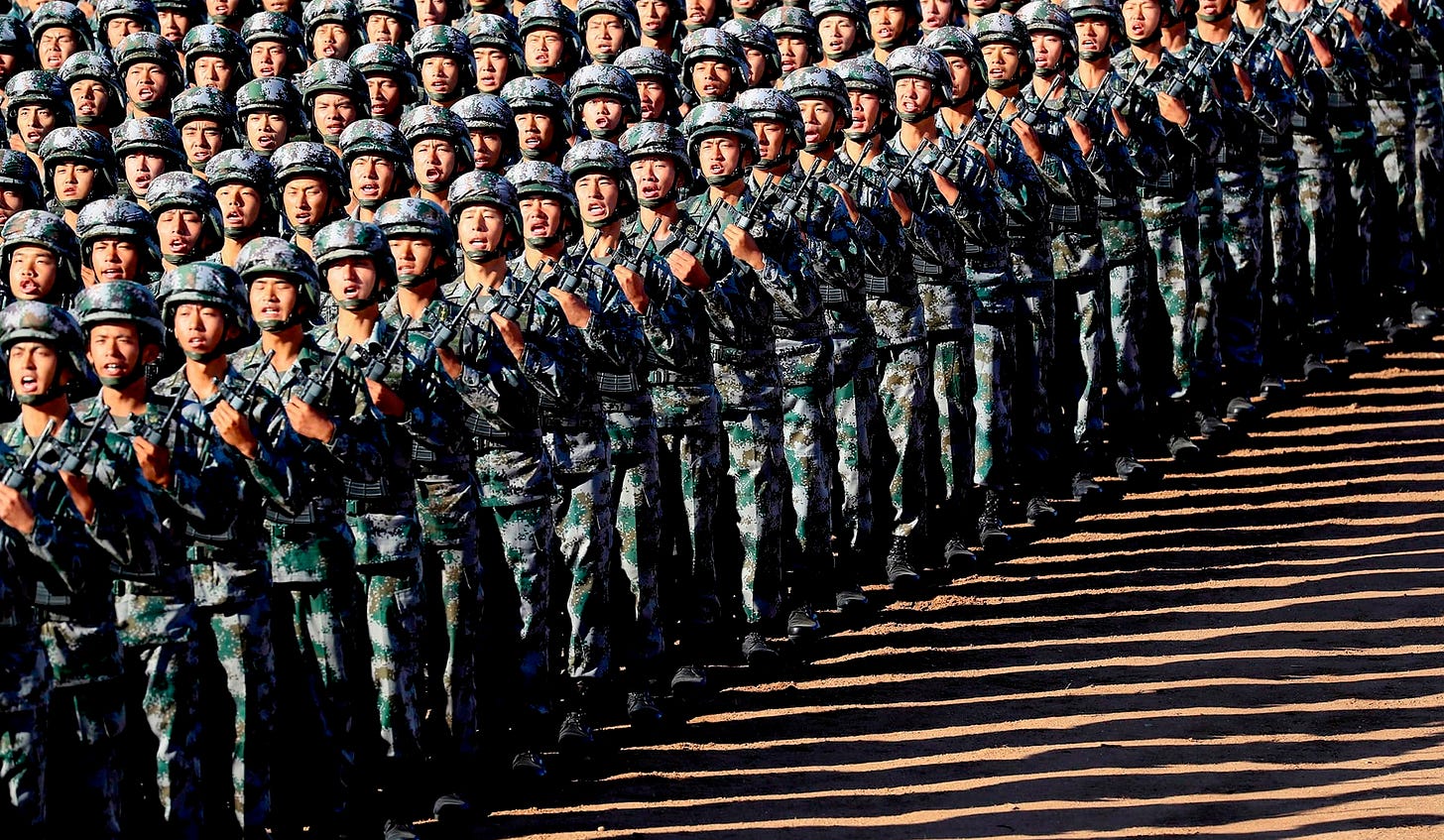
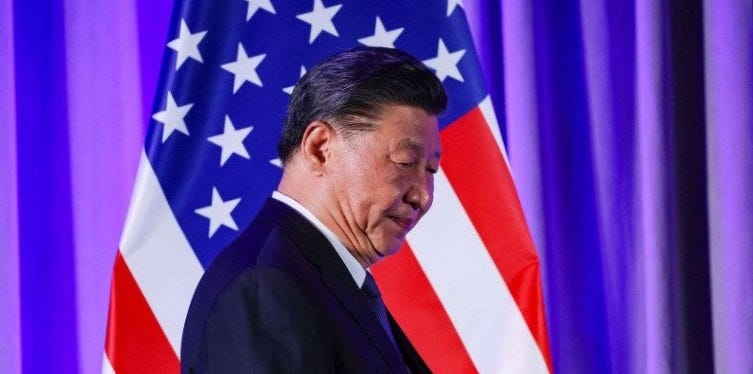
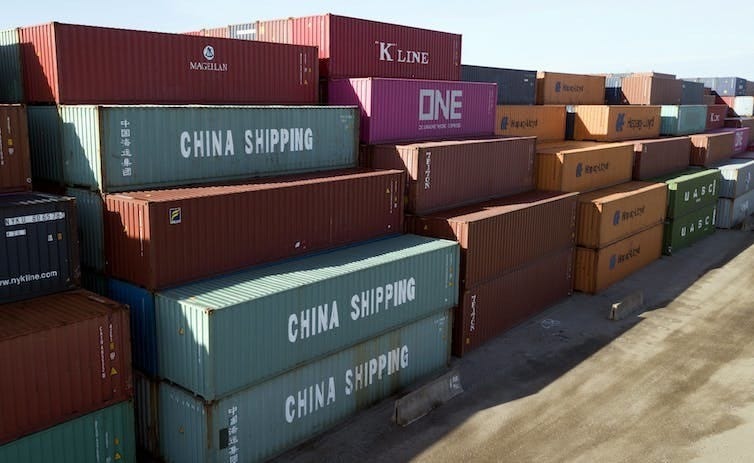

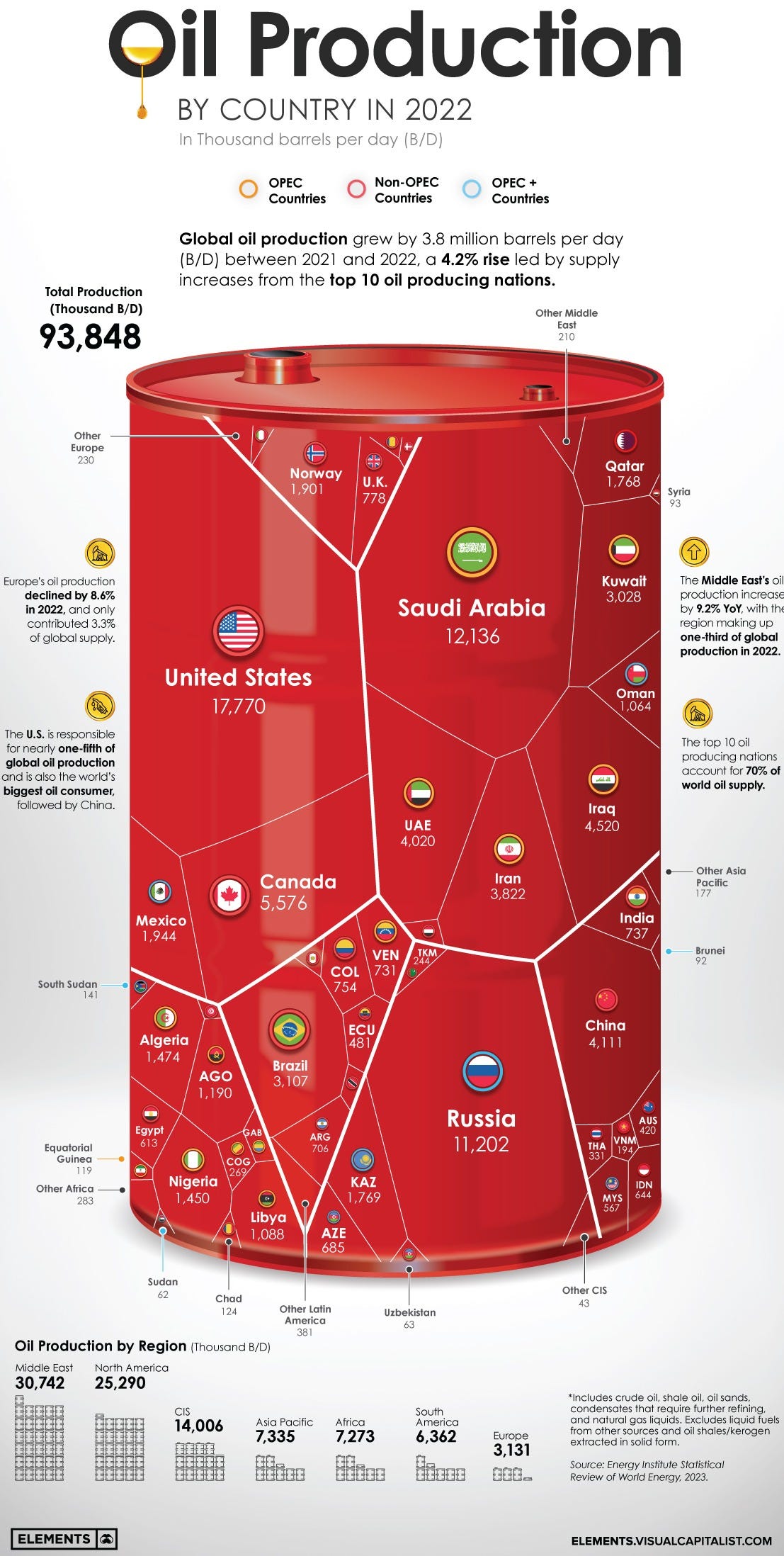
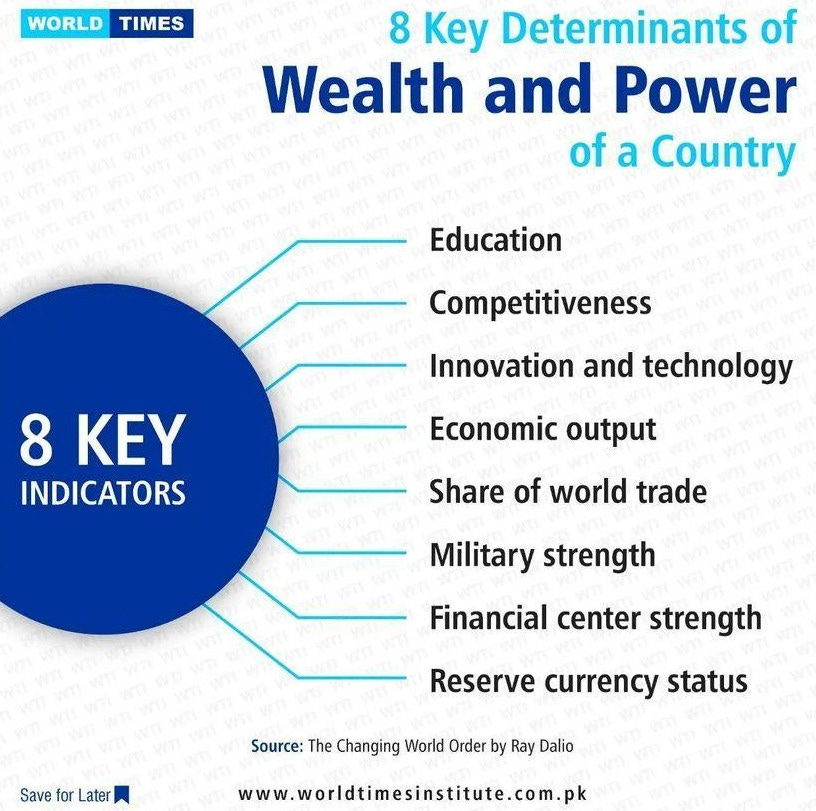
I thought I commented, but it doesn't seem to appear, so let me try again. Your piece reminds me of an article I read a year ago on NYT titled "Even China Isn’t Convinced It Can Replace the U.S." . https://www.nytimes.com/2023/05/04/opinion/china-us-world-order.html . My personal opinion. It didn't seem possible till about a month ago before Trump got elected. Since he got elected, he's been handing out tariffs like candy. While one could make the argument that he's merely using them as a bargaining tool, this is only going to push others into insulating their economies from Trump's threats. This should give China the perfect opportunity to step in and fill that void. IF China plays its cards correctly, it just might position itself in a position of power.